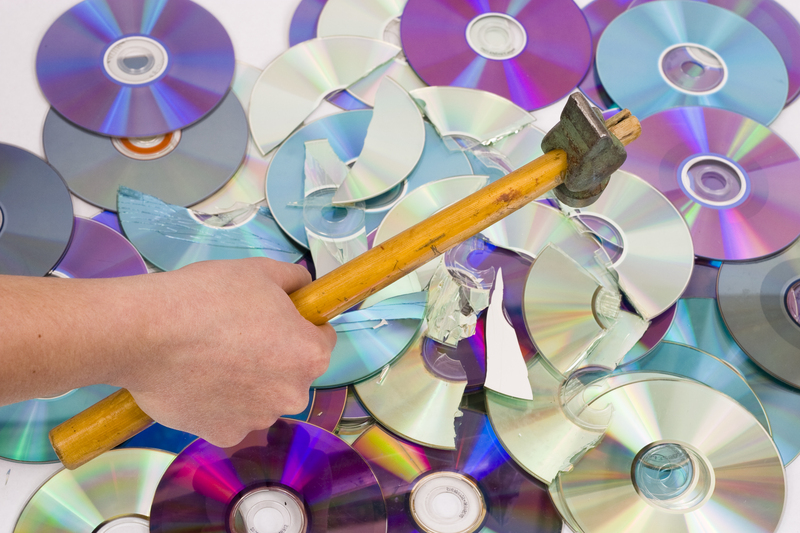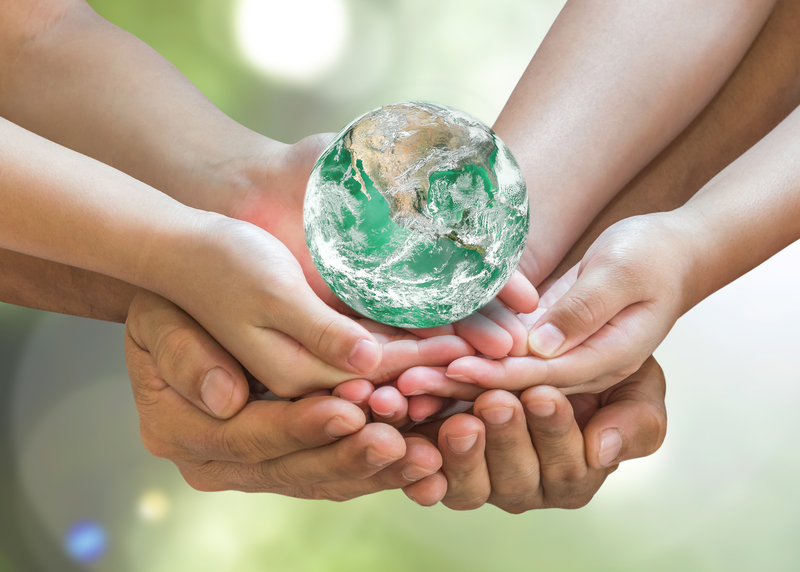Change the World by Reducing Your Plastic Waste
We live in a world where convenience often takes precedence over sustainability, especially when it comes to plastic use. A startling amount of plastic finds its way into our ecosystems every day, threatening wildlife, harming communities, and even entering our food chain. Reducing your plastic waste isn't just about making your life simpler-- it's about ensuring a cleaner, safer, and healthier world for generations to come. If you're looking to make a meaningful difference, start today by learning how lowering your plastic consumption can change the world, and discover practical strategies to minimize plastic waste in every aspect of your life.
Why Reducing Plastic Waste Matters
Plastic pollution is one of the gravest environmental challenges of our time. Each year, an estimated 8 million tons of plastic enter our oceans, impacting marine life, threatening food safety, and even affecting human health through microplastics. So, why should you care about cutting down on single-use plastics and packaging waste?
- Environmental Impact: Plastic can persist in the environment for hundreds, even thousands, of years, breaking down into microplastics but never truly disappearing.
- Harm to Wildlife: Animals often mistake plastic for food, leading to ingestion, entanglement, and even death.
- Health Concerns: Microplastics have been found in drinking water and food supplies, posing unknown health risks to humans.
- Resource Conservation: Producing and disposing of plastics uses massive amounts of energy and fossil fuels, further contributing to climate change.
The Ripple Effect of Small Actions
By taking steps to reduce your daily plastic usage, you not only lessen your personal environmental footprint but also encourage businesses and governments to adopt more sustainable practices. Never underestimate the power of collective action--every piece of plastic refused, reused, or recycled counts towards a greater global change.

Practical Strategies for Cutting Down on Plastic Use
Making a commitment to minimize plastic waste might seem overwhelming at first, but it's easier than you think. Here's how you can start having a significant impact today.
1. Ditch Single-Use Plastics
- Say No to Plastic Bags: Carry reusable canvas or cloth bags whenever you go shopping. This simple switch can eliminate hundreds of disposable bags per year.
- Switch to Refillable Bottles: Invest in a stainless steel or glass water bottle and make it a habit to carry it everywhere.
- Choose Bulk and Loose Produce: Select fruits, vegetables, and grains sold without packaging, and use your own reusable produce bags.
- Avoid Disposable Cutlery: Bring your own set of reusable utensils, particularly when ordering takeout or eating on-the-go.
- Avoid Disposable Straws and Cups: Request drinks without straws or bring a reusable cup or straw if you need one.
2. Make Thoughtful Purchases
- Buy in Bulk: Purchasing larger quantities reduces the overall plastic packaging compared to single-use items.
- Choose Products with Minimal or Compostable Packaging: Support brands that prioritize sustainability. Look for items packed in paper or compostable materials.
- Prioritize Quality over Quantity: Invest in durable goods that are built to last, instead of frequently replacing cheap, plastic-laden items.
3. Opt for Reusables Over Disposables
- Reusable Food Wraps: Replace plastic wrap with beeswax wraps or silicone lids to cover your food.
- Glass or Stainless Steel Containers: Store leftovers in containers that can be used repeatedly for years.
- Cloth Napkins and Towels: Swap out paper towels and napkins with their washable, fabric alternatives.
- Rechargeable Batteries: Reduce plastic-heavy battery waste by switching to rechargeables whenever possible.
4. Choose eco-friendly Personal Care Items
- Bamboo Toothbrushes: Make the switch from plastic toothbrushes to biodegradable bamboo versions.
- Bar Soaps and Shampoos: Purchase soap and shampoo bars instead of products in plastic bottles.
- Refillable Toiletries: Look for refill stations for liquid soap, lotion, or detergent to curb buying new plastic bottles frequently.
Innovative Alternatives to Plastic
Innovation is paving the way for a world with less plastic. Here are a few cutting-edge and accessible options you can consider:
- Plant-Based Packaging: Made from cornstarch, mushroom roots, or seaweed, these alternatives break down quickly and safely in the environment.
- Biodegradable Bags and Utensils: More brands are now offering cutlery and bags made from sustainable, compostable materials.
- Silicone Products: Unlike plastic, silicone is durable, reusable, and doesn't break down into harmful microplastics.
- Stainless Steel, Glass, and Natural Fibers: Longer-lasting and free from harmful chemicals found in plastics.
How to Integrate Plastic Waste Reduction into Daily Life
Consistent efforts can lead to lifelong habits that protect the environment. Here's how you can start reducing plastic waste every day:
At Home
- Recycle Properly: Learn your city's recycling rules to avoid "wish-cycling," which can contaminate entire batches of recyclables.
- Encourage Family Participation: Make reducing plastic a family game or project, challenging each other to invent new solutions.
- Compost: Composting food waste reduces the need for plastic trash bags and supports healthy soil.
At Work and School
- Pack Zero-Waste Lunches: Bring meals in reusable containers, and avoid individually packaged snacks.
- Advocate for Change: Suggest switching to bulk supplies or filtered water stations in communal areas to limit disposable bottle use.
On the Go
- Travel Light and Smart: Take travel mugs, water bottles, and reusable bags wherever you go.
- Pick Up Litter: Make it a habit to collect plastic waste you see and dispose of it correctly.
Community Engagement
- Participate in Local Clean-Ups: Join community efforts to collect plastic waste from beaches, parks, and streets.
- Educate Others: Share your experiences and tips for cutting down on plastic at community events, online forums, or among friends and family.
Myths and Misconceptions about Plastic Waste Reduction
While the movement to reduce plastic waste is gaining momentum, a few myths still persist:
-
Myth 1: My actions don't matter.
Truth: Individual choices can collectively drive industry-wide changes and shift societal norms.
-
Myth 2: All plastics are recyclable.
Truth: Many plastics--like plastic bags, wrappers, and certain containers--aren't accepted in curbside recycling programs. Knowing what's recyclable in your area makes all the difference.
-
Myth 3: Biodegradable products are always better.
Truth: Not all "biodegradable" plastics decompose safely in the environment. Compostable items must often be processed through industrial composting facilities to break down correctly.
-
Myth 4: Reducing plastic is expensive.
Truth: Many solutions--like carrying your own bag, bottle, or cup--end up saving you money in the long run!
Global Initiatives and Success Stories
Around the world, countries, companies, and entire communities are taking actionable steps to slash their plastic waste:
- Plastic Bag Bans: Over 90 countries have enacted bans or taxes on single-use plastic bags, drastically reducing their use.
- Deposit Return Schemes: Nations like Germany and Norway boast some of the highest bottle recycling rates thanks to deposit return systems.
- Corporate Responsibility: Major companies are pledging to use 100% recyclable packaging by 2030 and setting measurable targets to cut down on virgin plastic consumption.
- Grassroots Movements: Initiatives like beach clean-ups, zero waste shops, and plastic-free challenges are changing how entire communities think about consumption.
Challenges in Reducing Plastic Waste--And How to Overcome Them
While the benefits of plastic reduction are clear, obstacles exist. Convenience, availability, affordability, and misinformation all stand in the way. But with awareness comes innovation.
- Start Small: Focus on changing one habit at a time. Bring your own bag, then add another step like switching to a reusable bottle.
- Get Creative: When options aren't available, improvise. Repurpose glass jars for storage, or make homemade cleaning solutions to avoid buying plastic bottles.
- Use Your Voice: Contact lawmakers, sign petitions, and support brands that prioritize the environment.
- Share and Inspire: Share your journey on social media or with friends. Your success can help others make similar changes.

The Future of Plastic Waste Reduction
The momentum to reduce plastic pollution is only growing. From scientific breakthroughs in biodegradable materials to government regulations, positive changes are on the horizon. But the most important catalyst remains ordinary people making conscious choices every day.
As you continue to reduce plastic waste in your own life, remember that sustainability isn't about perfection. It's about making better choices whenever possible, learning along the way, and inspiring others to join you.
Conclusion: Start Your Plastic-Free Journey Today
Changing the world doesn't require grand gestures. By taking simple, consistent steps to reduce your plastic usage, you contribute to a movement with profound environmental, social, and economic benefits. Let your actions inspire others--because together, we can create a cleaner, healthier planet for all.
Ready to make a difference? Start today by choosing one new habit, sharing your commitment, and becoming part of the global shift to reduce plastic waste and pollution. Every action counts, and the world needs your help now more than ever.
- Refuse unnecessary plastics.
- Reuse whenever possible.
- Recycle correctly.
- Inspire others to join you.
Together, we can change the world--one less piece of plastic at a time.